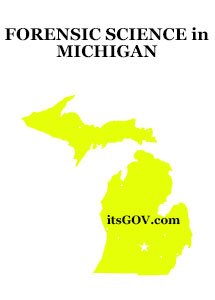Forensic Science
Forensic science combines science and investigation in order to aid and support the prosecution or defense in criminal and civil investigations. While the profession has been widely romanticized by various TV shows, make no mistake – this job is most likely different that you expect. In contrast with popular perception, this is a highly scientific role, which often involves detailed, painstaking work. Field duties are limited to a few areas of expertise, and most often than not a forensic scientist will spend his time in the lab.
If you made it this far, though, congratulations! You’re taking the first steps in joining a very rewarding profession and itsGOV is here to guide you through what you need to know and what you need to do to join a forensic science program in Connecticut.
Depending on the type of forensic science practiced, different degrees and educational backgrounds may help a candidate get a job and excel in this field. Regarding formal education, requirements vary across jobs, but you should definitely have a solid background in mathematics, biology and chemistry.
The National Institute of Justice, a division of the U.S. Department of Justice, offers guidelines for model undergraduate and graduate forensic science degree programs. According to the American Academy of Forensic Science, strong programs should offer a curriculum that concentrates on scientific writing, laboratory skills, public speaking, and computer software application training.
Forensic Science Requirements in Connecticut
In general, an associate’s degree allows students to prepare to pursue a bachelor’s or master’s degree in forensic science through a scientific curriculum and plenty of hands-on experience in analyzing and processing the physical evidence found at crime scenes. A comprehensive associate’s degree program will incorporate physical science and law in the context of forensic investigations. Core requirements for an associate’s degree in forensic science therefore often include:
- Forensic Psychology
- Forensic Aspects of Death Investigation
- Fire and Arson Investigation
- Physical Identifiers
- Firearms and Toolmarks Identification
- Basic Accident Investigation
A bachelor’s degree in forensic science not only provides an education in the technical aspects of forensic science, but in the biological sciences, physics, and chemistry, as well. As such, a bachelor’s degree in forensic science is rather cross-disciplinary, with students engaging in both criminal justice and science courses. Through a comprehensive bachelor’s degree program in forensic science, students are provided with an appreciation of the scientific and social environment of crime and of the criminal justice system.
Forensic Science Salary in Connecticut
The field of forensics is growing in Connecticut. Its Department of Labor estimated that the number of jobs for forensic scientists will increase 16.9% between 2010 and 2020. The pay level has been increasing yearly, too, with an increase of 21.6% from 2004 to 2012.
According to the Bureau of Labor Statistics (BLS), slightly over one third of the forensic science technicians in the state worked in the Hartford area. The eighty forensic science technicians employed in Connecticut in 2012 had an annual median salary of $68,140. Experienced professionals in the top tenth percent of their wage bracket earned an average of $88,840 a year.
In addition to the forensic scientists who work as lab technicians, a number of people in this field work in the area of crime scene investigation. They document the scenes and collect physical evidence from the sites.
Crime scene investigator (CSI) jobs vary from those of highly experienced police detectives with forensic training to civilian positions that employ people with an education in forensics or criminal justice.
There are a number of specialized jobs for CSIs, including criminalists and latent fingerprint examiners. The pay for criminalists in Connecticut typically increases by 22% after having ten years of experience. Salary data is available for crime scene technician positions in Waterbury. These jobs pay from $37,270 to $50,718 a year based on information available in 2013.
Forensic Science Training in Connecticut
Forensic science jobs are most often focused on the forensic laboratory, whereas the professionals at the scene of the crime generally fall under the field of crime scene investigation (CSI). Forensic scientists are professionals who gain valuable information regarding crime scene investigations through scientific analysis and observation. A Forensic Science Examiner I within the Department of Emergency Services and Public Protection, Division of Scientific Services, is responsible for receiving, examining, and conducting complex analyses of physical evidence in the areas of DNA, forensic identification, and toxicology. Forensic scientists working in Connecticut’s Forensic Science Laboratory must possess at least 6 years of experience in the forensic analysis of evidentiary material. Candidates for forensic scientist jobs in Connecticut who meet the minimum experience/education requirements must take an examination that assesses their experience and training knowledge in the following areas:
- Modern methods in crime scene processing and evidence examination
- Applicable techniques and procedures for analyzing evidentiary materials
- Physical laboratory instrumentation, documents, firearms, fingerprints and reconstruction techniques
- Computer-based operating systems
- The team approach in gathering and analyzing evidence
Schools and Colleges in Connecticut
Bachelor’s Degrees
| University | University of New Haven, Connecticut, Forensic Psychology B.S. |
| Duration | 4 years |
| Type | Full time, Part time |
| Tuition and fees | $18,245 per year |
| Program link |
| University | University of New Haven, Connecticut, Forensic Science B.S. |
| Duration | 4 years |
| Type | Full time, Part time |
| Tuition and fees | $18,245 per year |
| Program link |
| University | Central Connecticut State University, Criminology and Criminal Justice Department, Criminology B.A. |
| Duration | 4 years |
| Type | Full time, Part time |
| Tuition and fees | $18,245 per year |
| Program link |
Master’s Degrees
| University | University of New Haven, Forensic Science M.S. |
| Duration | 4 years |
| Type | Full time, Part time |
| Tuition and fees | $13,184 per year |
| Program link |



